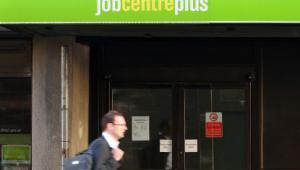‘If councils want to increase council tax further, they will have to prove the case to the electorate. Let the people decide.’
This is the message that communities secretary Eric Pickles gave today as he unleashed an initiative that may do more to turn local public sector accountability on its head than years of ‘community empowerment’ programmes.
Pickles wants communities to have the final say on council tax bills by offering referendums where local authorities exceed a threshold agreed by Parliament.
Providing residents with a voice in the governance of their local area is very important to creating better services and rebalancing relations between individuals and the state. Greater direct accountability and community involvement is key to providing services that are efficient and focused on the needs and priorities of service users.
Proper accountability relies on transparency and openness in public affairs, as well as clear lines of accountability. The government’s approach to releasing both central and local financial expenditure data is certainly a step in the right direction in this regard.
But there will be challenges with this approach too – particularly around the extent to which people will have access to sufficient information and around the context for why councils want to raise their tax.
As referendums in California, where successive publicly enforced reductions in taxes led to many schools becoming chronically underfunded, have shown, people need to understand the costs and benefits of what they receive before they decide whether it offers value for money, or whether it fits with their priorities. The ‘shadow budget’ aspect of Pickles’ proposals seems like a step in the right direction in this regard.
Another challenge will be around the blurred lines of accountability. There are so many different agencies at the local level that the average person will struggle to pinpoint what the council provides, and what is produced by a range of other agencies, and indeed quangos.
It is also largely impossible to tell who has funded the services the councils provide, leading to a fog of complexity and confusion. The government seems committed to reducing this confusion, with an extension of devolutionary measures such as directly elected police commissioners, schools led directly by parents, and the scrapping of unaccountable sub-regional bodies and quangos.
Another possible difficulty with council tax referendums, perhaps paradoxically, is a break in local accountability. Currently, we vote for our councillors based on a set of commitments, they act on their given popular mandate and the populace hold them to account at the next election. Did they deliver what they promised? Is the area better because of their actions?
However, if referendums are introduced, local policy-makers may point to public votes as the reason why promises were not delivered.
Allowing the residents of an area to decide their own rates of council tax is a positive step. However, to succeed there are fundamental problems to tackle, such as: the gearing effect; lack of understanding about local services; how much those services cost; and keeping council tax in the area in the first place, to create a direct link between what a council collects in tax and what services it delivers. What is absolutely certain is that the coalition still has a lot to get its teeth stuck into.
Barry Maginn is a researcher at the Localis thinktank










